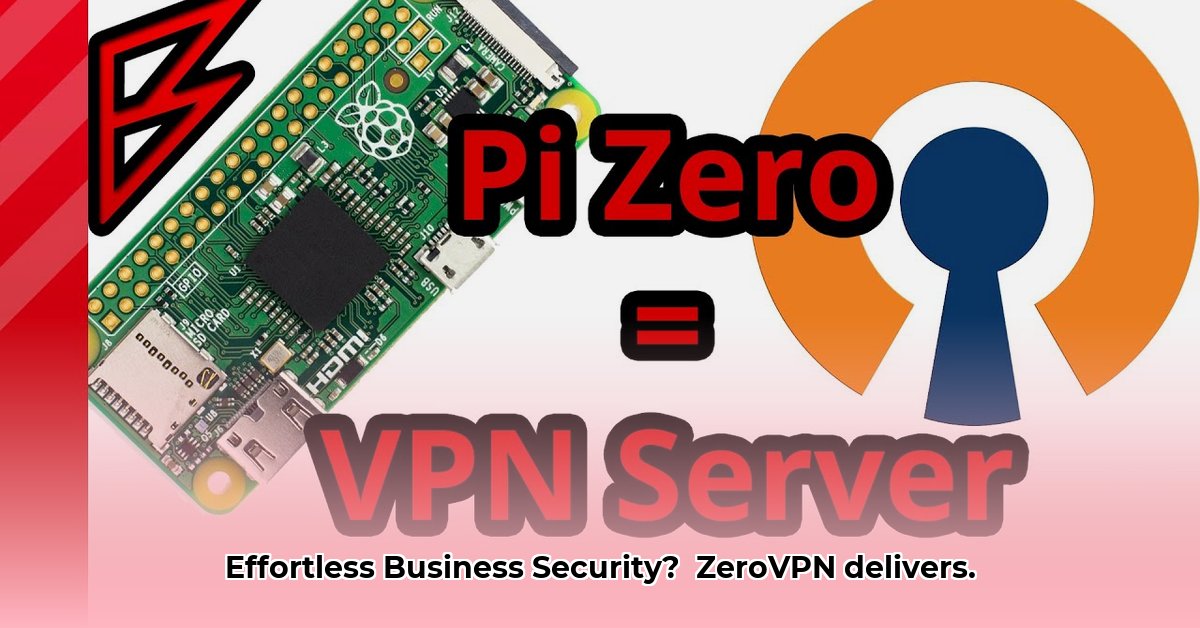
ZeroVPN promises effortless business security through its Zero Trust Network Access (ZTNA) solution. This review examines its claims, exploring its strengths, weaknesses, and suitability for various business needs. We assess its user-friendliness, security features, pricing, and overall effectiveness. Ultimately, we aim to help you determine if ZeroVPN is the right fit for your organization.
Understanding ZeroVPN and Zero Trust Network Access (ZTNA)
ZeroVPN simplifies Zero Trust Network Access (ZTNA), a security model shifting from perimeter-based security to user and device verification. Instead of trusting everyone within the network, ZTNA verifies each access request. ZeroVPN aims to make this complex technology accessible for businesses of all sizes, even those with limited IT resources. Think of it as a sophisticated digital gatekeeper, ensuring only authorized users and devices can access your network. Does it successfully balance user-friendliness and robust security? Let's find out.
Security: A Critical Examination
ZeroVPN leverages OpenVPN (an established secure protocol), providing a solid foundation for encryption and secure connections. However, a key concern is the lack of detailed public information regarding the specifics of its security architecture and independent security certifications. This lack of transparency raises concerns, especially for businesses subject to strict compliance regulations (like HIPAA or GDPR). Without independent verification from reputable sources, the extent of its protection against sophisticated cyberattacks remains uncertain. Where are the penetration testing reports? What about vulnerability assessments? The absence of these is a significant drawback.
User-Friendliness and Deployment: A Balanced Perspective
ZeroVPN’s user-friendly interface is frequently praised, making setup and management relatively straightforward. This is particularly appealing to smaller businesses with limited IT staff. However, the scalability for larger organizations remains to be fully validated. While simple for a small team, can it easily handle complex needs of a large enterprise with extensive network infrastructure? Further investigation is needed regarding its handling of large-scale deployments. Simplicity with a small team doesn't always translate to ease of management in a larger organization.
Pricing: A Flexible Approach
ZeroVPN offers a free plan, an excellent entry point for testing or smaller operations. Paid plans provide enhanced features like faster speeds and access to more server locations. The pay-as-you-go model avoids long-term contracts, but requires careful budgetary planning. How will the costs scale alongside your business growth? Thorough comparison across pricing tiers is crucial. Is the cost-benefit ratio favorable for your projected growth trajectory?
ZeroVPN for Different Business Needs
ZeroVPN's suitability varies across different business contexts:
- Small/Medium Businesses: Ideal for ease of setup and management; the free plan offers a low-risk entry point. However, a thorough security audit is recommended before full deployment.
- Large Businesses: Requires extensive testing to ensure compatibility with existing infrastructure and sufficient scalability. A phased implementation might be necessary.
- IT Professionals: Need to meticulously vet the technical specifications, including security protocols and integration capabilities with existing systems.
- Security Experts: Demand independent audits and penetration testing to verify the platform's claims and resilience against current threats. Continuous monitoring is essential.
Weighing the Pros and Cons
Pros:
- User-friendly interface and straightforward deployment.
- Flexible deployment options catering to different business needs.
- Employs the strong OpenVPN protocol, a robust security foundation.
- Affordable pay-as-you-go pricing and a free plan available.
Cons:
- Insufficient public details on specific security protocols and independent certifications.
- Scalability for large enterprises needs further validation through rigorous testing.
- The free plan's limitations may restrict some businesses.
Concluding Thoughts: Promise with Caveats
ZeroVPN offers a promising solution, particularly for SMBs prioritizing ease of use. Its intuitive design and flexible pricing are significant advantages. However, the lack of readily available detailed security information and independent audits is a serious concern. Before fully adopting ZeroVPN for business-critical operations, independent security verification is paramount. While it shows promise, proceed with caution and ensure it aligns with your security requirements and future scaling needs. Further due diligence is strongly recommended.
How to Independently Verify ZeroVPN's Security
This section outlines actionable steps for verifying ZeroVPN's security claims:
- Encryption: Verify the specific encryption protocols used (e.g., AES-256) and whether it's end-to-end. Independent audits confirming encryption strength are crucial.
- Authentication: Determine the supported multi-factor authentication (MFA) methods. Stronger MFA significantly enhances security.
- Logging: Understand ZeroVPN's logging practices – what data is logged, for how long, and its protection. Compliance with regulations like GDPR or CCPA must be verified.
- Server Infrastructure: Identify server locations—this impacts latency and data sovereignty considerations.
- Independent Audits: Seek independent security audits and reviews from reputable sources to validate ZeroVPN's security claims.
- Community Feedback: Review user experiences from trusted sources, but treat this information as supplementary, not definitive.
⭐⭐⭐⭐☆ (4.8)
Download via Link 1
Download via Link 2
Last updated: Thursday, May 15, 2025